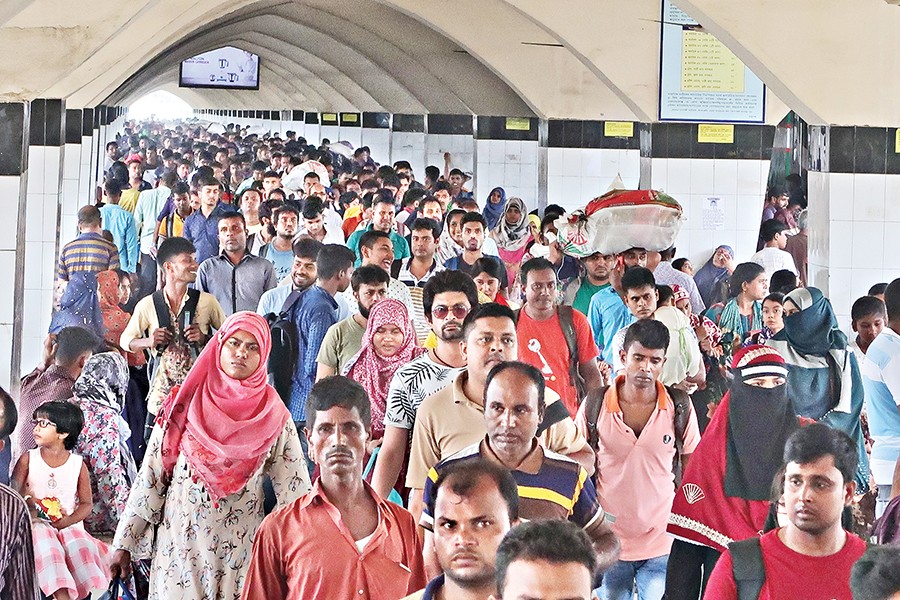
Published :
Updated :

Rare are the people who do not enjoy holidays. The longer are holidays, the more inviting are they. Usually, longer national holidays are reserved for celebration of religious occasions all over the world. Livelihood compulsions push people out of their places of birth and disperse them all over their own country or even far beyond the border. But the yearning for a return to the root is there. Some openly admit it; others unable to make a journey home for unavoidable reasons and under different circumstances bury the pangs of separation within their bosoms. They may be globe-trotters but home sweet home has its irresistible appeal one cannot get over.
Every religion has its own great religious festival. To celebrate such festivals, there is need for time -leisure in fact, money and energy. Such festivals involve a whole community and at times even cross the religious boundary, making those an inter-communal affair. The more such festivals transcend boundaries, the greater the scope of their universal acceptability. When a nation goes on a long vacation of three or four days or even a week, the holiday mood prevails for all irrespective of caste and creed.
Religions have prudently made allowance for yearly breaks from the monotonous routine of life. Ancient civilisation discovered the virtue of breaks from dull and drab living. In ancient Greek, people had annual sports events and drama fortnights for entertainment. Today people are more workaholic than before and should welcome breaks from routine duty. No wonder, organised tours have been developed in order to make travel within a country or abroad easier. However package tour that focuses on sightseeing and spending time in luxury and comfort is an affair of the highly paying executive or the ultra-rich. Those who seek reunion with their roots would rather go back to their rural roots to renew the bonds. Eid holidaymakers are not the one to have frolicking in their minds. They perform their religious obligation and at the same time reenergise them through their association with what they miss when they stay away from village.
But then there is a category of travellers who get out without a specific objective. They like to drink the last dreg of the beauty and wonders that continue to unfold before them as they move to a place or from one place to another. After the monotonous office works their body and mind hanker after the cradle of Nature where there is nothing artificial or pretentious. All they care for is the unalloyed warmth and the appeal of a place. They know that they cannot revisit the same place in the way one cannot bathe twice in the same river. The river changes but the persons change more than the river. It is equally true for a place or what is called a tourist spot.
For the ordinary tourists though, the appeals are superfluous. They are keen to take selfies and/or have their pictures before something attractive not so much for their presence, making those memorable but for showing others in order to draw appreciation from the latter. Anyway, man is no machine. Everyone -the ordinary or the exceptional -need breaks. Some may express what they feel in presence of a beautiful site, most others experience the elevating feeling of rebonding with their near and dear ones.
This time the Eid holiday was set against the twin affliction of flood and dengue. Also, the travel schedules were upset to a degree not quite witnessed earlier on. And, yet the people observed the festivity with extraordinary resilience and a palpable sense of compassion.


 For all latest news, follow The Financial Express Google News channel.
For all latest news, follow The Financial Express Google News channel.